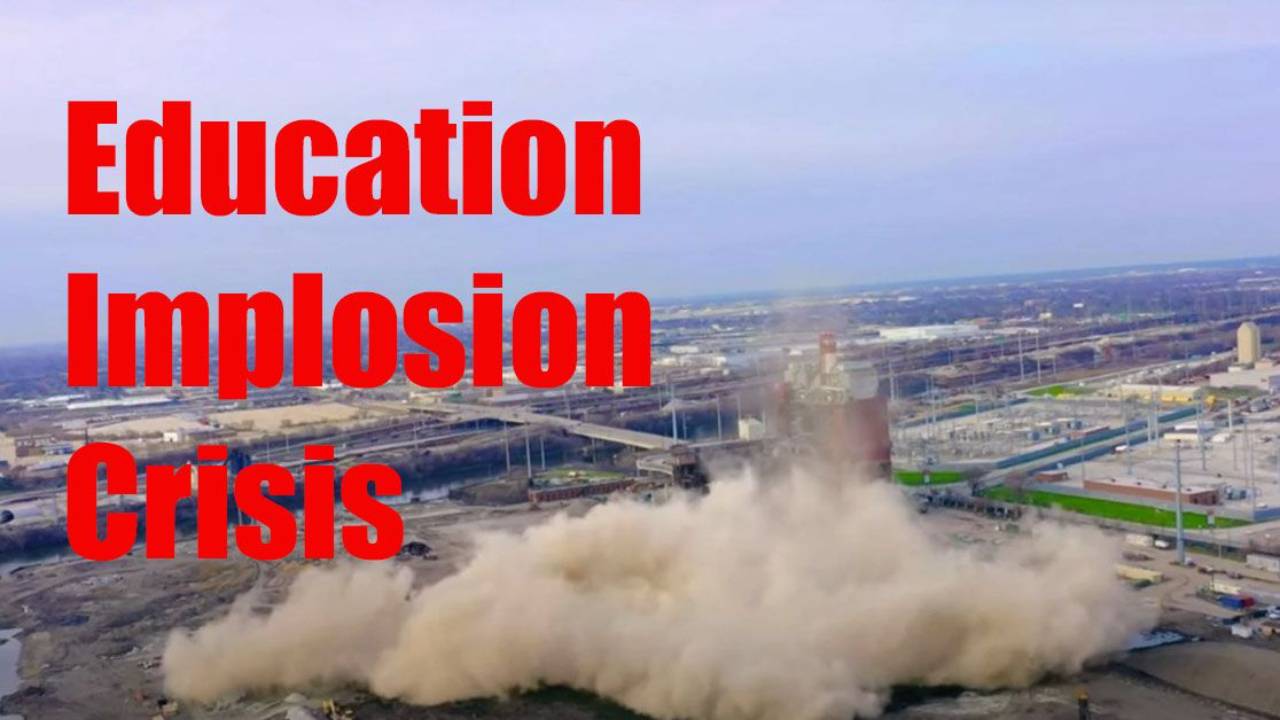
Education implosion. Crisis call for Education preparation.
Jul 07, 2022The Pandemic hammered the education of school age children. Its impacts continue to be experienced.
The data is in, and the outcome is ugly. For children not able to attend in-person school, the lost knowledge in many areas, not just academic, is huge. These children are now at a competitive disadvantage.
Comparative studies of public schools that went into lockdown versus private schools which remained open, tell a sad story. Lost time, lost talent and going forward, loss of earning potential from employment after graduation.
To “catch up” with peers, if that is even a possibility, requires a much more refined method of teaching and instruction. The first job of teachers and administrators is to establish what is called “instructional control.” Afterall, how can anyone provide quality education to students who are exhibiting problem behavior in the classroom? Keep in mind, the learning loss we are referring to is more than academics. Social learning, the ability to relate and interact with peers as a part of whole-person learning was also lost for most of these children for nearly two years. Thus, the motivation to exhibit behaviors that gain the attention of peers is higher than ever.
To overcome distractions, instructional staff, including teachers need new evidence-based tools available only through Applied Behavior Analysis (ABA).
The science of ABA has been around for more than seven decades. It is a science, therefore uses techniques which are researched, reviewed by other scientists as valid, and published. This is what we refer to when we state that ABA methods are “evidence- based.”
Our online Registered Behavior Tech® (RBT®) course, offers sequential instruction in ABA principles and best practices. This 40-hour course prepares candidates to earn an RBT credential through the Behavior Analyst Certification Board. The result for your school district is more predictable improvement in student educational outcomes, including the decrease or elimination of problem behaviors.
An example of how the knowledge provided in the RBT course can assist is provided here. Many educators have experienced the “class clown” while in middle or high school. You know, the kid who is always making jokes and cracking up the class while the teacher attempts to deliver their lessons. Often that interaction led to a frustrated teacher yelling at the student to “go to the principal’s office.” As the student is leaving the class. he would slam the door evoking an outburst of laughter from peers. To maintain instructional control, a working knowledge of ABA would have the teacher prompt the student as follows: “and shut the door as you leave.”
Anticipating the behavior was going to occur, simply using the knowledge of the concepts of behavior, that simple command for something that was about to take place anyway, puts the teacher in instructional control. Rather than the other students breaking out in laughter, the effect is the teacher made a slight demand and the class clown complied. With instructional control established, the teacher returns to her lesson. A simple example of the power of ABA in maintaining instructional control of a classroom.
Of course, the challenges of special needs classes are different and more dramatic, but the ABA principles are the same. The RBT training course will make a positive impact on overall learning outcomes.
For only $99 per user, you can provide your staff with the 40-hour online RBT training coursework.
Group discount is available, and we honor purchase orders. We are certain this coursework will assist in changing behavior, and in obtaining quantifiable data to support your plan for bringing student learning outcomes up to speed. For more information, email us at [email protected].
